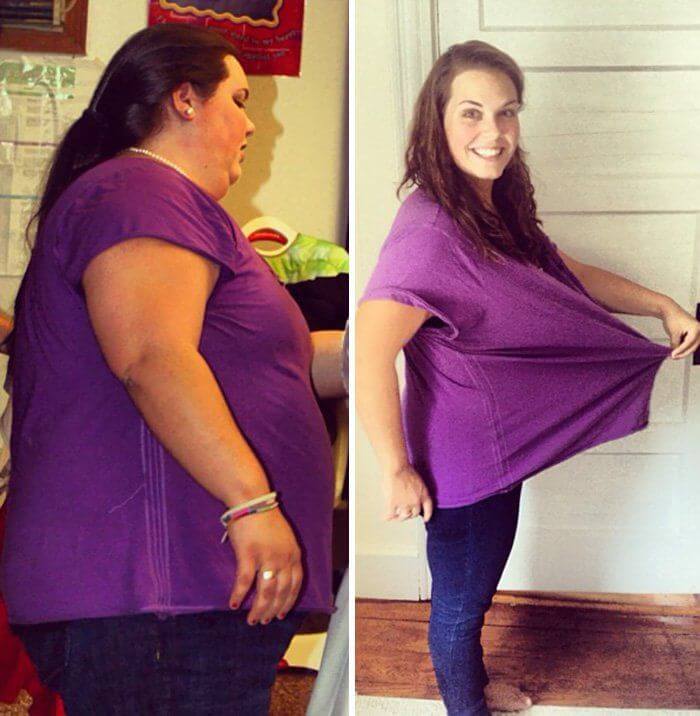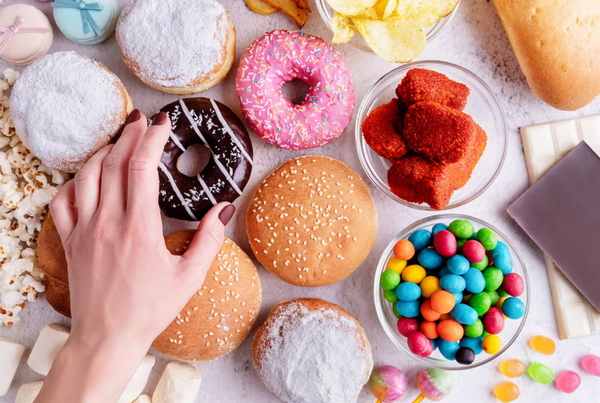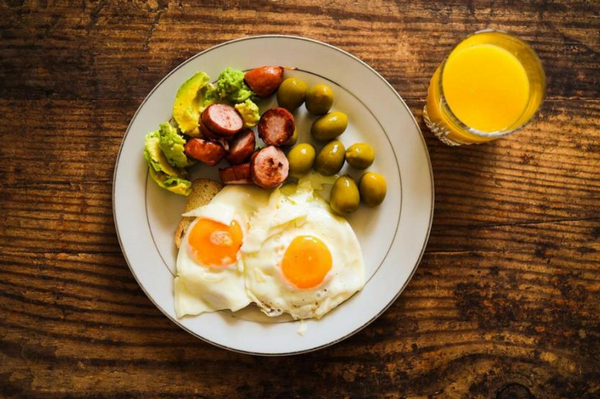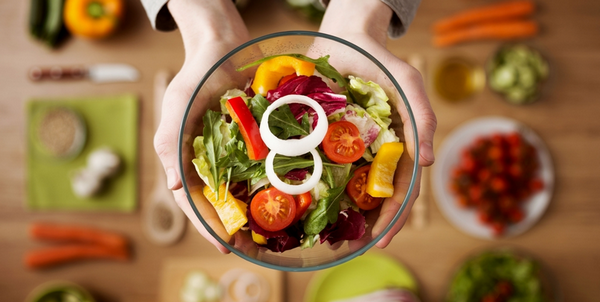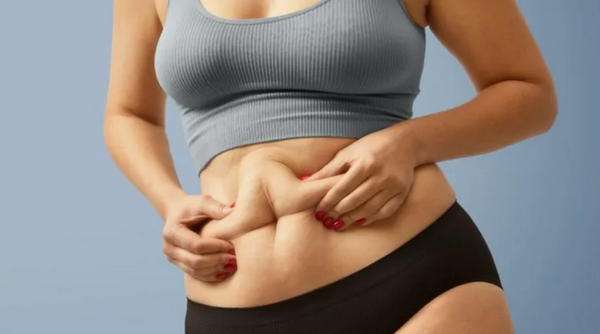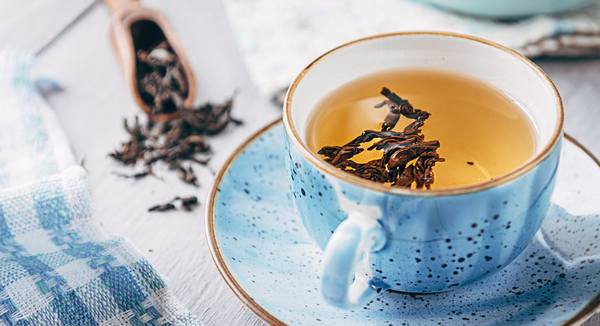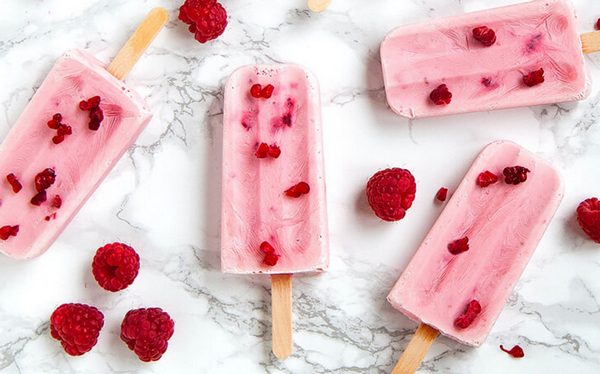
How to replace sweets with weight loss and proper nutrition? Is it always necessary?
Doctors and nutritionists traditionally call sweets and muffins an absolute taboo for weight loss and proper nutrition. Cakes and white bread, donuts and sweets are considered sources of "empty" calories and cause not only the appearance of extra pounds, but also serious metabolic failures. Why we are drawn to harmful sweets, what sweets are prohibited for weight loss and proper nutrition, and what can replace prohibited foods.
Why an excess of sweets is harmful. About fast carbohydrates and "empty" calories
Food is a source of macro- and microelements necessary for the body to function normally. Macronutrients are proteins that function as a building material for cells, as well as fats and carbohydrates, which primarily play the role of energy sources (they have other functions, but energy is the main one).
Carbohydrates are divided into "fast" and "slow". "Fast" carbohydrates are found in sugar, premium flour, ground rice and, accordingly, products in which these components are contained in large quantities.
"Fast" carbohydrates are instantly absorbed into the bloodstream – this process begins already in the oral cavity, when you are still chewing sweets or a piece of a muffin made from premium flour. At the same time, the level of insulin, a hormone necessary for the absorption of carbohydrates by tissues, sharply increases in the body.
"Slow" carbohydrates are present in whole grains and products made from it, cereals, whole-grain bread, pasta made from durum wheat or whole grains. The breakdown and assimilation of "slow" carbohydrates occurs gradually, while the level of insulin does not rise sharply.
Sweets – cakes, pastries, muffins, sweets – are high-calorie foods that contain a large amount of "fast" carbohydrates and fats. Such food gives the body only energy, but does not contain the building materials necessary for cells, macro- and microelements that ensure the processes of vital activity. That is why such calories are called "empty".
One piece of cake can compare in its calorie content with a full meal, or even surpass it, while it will not be able to provide a feeling of satiety for a long time and does not have sufficient nutritional value. You will need to eat something besides cake, that is, exceed the required number of calories. The body will have to reserve excess energy in the form of adipose tissue. Thus, there can be no question of any weight loss or healthy eating with frequent use of sweets.
Is it possible to lose weight if you give up sweets? The answer to this question depends on nutrition in general. If, in addition to giving up harmful treats, a healthy diet with a calorie deficit in the diet is organized, body weight will gradually decrease. If the refusal of sweets is "compensated" by the use of fatty foods, snacks and fast food, and the caloric content of the diet is higher than the body needs, there is no need to talk about any weight loss.
Additionally, you can look at protein sweets that contain protein, vitamins and minerals, and instead of sugar, they often add safe sugar substitutes that do not contain calories. The main thing is to carefully read the composition.
It is not necessary to completely abandon carbohydrates – moreover, it is harmful to health. Fats and carbohydrates are necessary for the body in moderation – it is an important source of energy, especially for nervous tissue. Therefore, even those who lose weight or adhere to proper nutrition, eat sweets. The main thing is that these are healthy sweets, of which, fortunately, there are a lot.
Why you constantly want sweets: unexpected reasons from parenting to health problems
There are lucky people who, by nature or due to properly formed food habits from childhood, are indifferent to sweets. There are also those who, on the contrary, for one reason or another, cannot live without sweets and cakes. For some people, the craving for sweets may increase and decrease.
Why do we love sweets so much? There are a number of reasons related to both psychological characteristics and habits, as well as physiological processes occurring in the body. Among the main reasons:
- Eating habits formed during life. The love of sweet porridges, white bread and buns, tea with sugar is usually laid in childhood or adolescence. Many such habits seem to be the absolute norm, because parents, grandparents drank tea with sugar and sweets in the same way. The habit of consuming a large amount of "fast" carbohydrates gradually leads to the formation of appropriate metabolic features – in particular, to the production of insulin in increased quantities. Over time, this can cause insulin resistance – the immunity of tissues to insulin.
- Chronic fatigue, lack of sleep. Insufficient sleep leads to the fact that the body does not have time to recover and is experiencing a shortage of energy, and "fast" carbohydrates are the fastest and easiest source of it. In addition, with a lack of sleep, the regulation of ghrelin and leptin, hormones that provide switching between states of satiety and hunger, is disrupted. Of course, a chocolate bar cannot be compared with a full rest: during a night's rest, cells and tissues are restored, and the brain removes the metabolic products accumulated during the day. Therefore, it is pointless to hope to "catch" lack of sleep: this way you can only gain excess weight.
- Endocrine diseases. In some diseases, in particular, diabetes mellitus, obesity, cravings for sweets may increase due to metabolic disorders.
- Fluctuations in the hormonal background. Cravings for sweets can provoke not only diseases, but also natural changes in the hormonal background. For example, many women note the appearance of a craving for sweets in the last few days before menstruation or during pregnancy. This is a natural phenomenon, but of course you do not need to follow his lead, otherwise there is a high risk of gaining extra pounds.
- Stress, high mental loads. In stressful situations and when the brain is working hard (for example, during the delivery of a responsible project, diploma defense, exams), metabolism in the nervous tissue accelerates, and nerve cells, respectively, need more glucose. Of course, even in this case, it is better to give preference not to harmful cakes and pastries, but to more useful sweets, which we will discuss below.
- Boredom, sadness, bad mood, dissatisfaction with yourself, loneliness. Eating sweets brings us pleasure, so often the craving for sweets appears when there is not enough pleasure in life – the body tries to compensate for the lack of pleasant emotions in everyday life in this way. It is important to learn how to identify such situations and try to enjoy other actions that are safe for metabolism – for example, from walking, socializing with friends, creativity.
It is not necessary to completely abandon the treats: what to replace the sweet
How to force yourself to stop eating sweets? And you don't need to force it! There are many sweet products, the use of which does not bring such harm as traditional cakes, sweets and muffins. But do not forget: such products also contain sugar, so do not assume that such delicacies can be eaten in unlimited quantities.
Important: with diabetes, even "healthy" sweets may be prohibited or allowed in very limited quantities, the diet for diabetes must be agreed with the attending physician.
And now let's look at sweets that can be eaten by losing weight and those who observe proper nutrition.
Fruits and berries
Fruits and berries also contain sugars in the form of glucose and fructose, but, unlike refined white sugar, they are absorbed more slowly, without provoking insulin spikes. In addition, fruits and berries contain a lot of vitamins, minerals and fiber useful for digestion.
By the way, it is because of fiber that whole fruits are healthier than juice from them. If you really want to drink juice, squeeze it yourself and drink it without adding sugar, and not on an empty stomach, so as not to irritate the gastric mucosa. Ready-made juices in bags due to the large amount of added sugar are as harmful as sweet soda.
It is important to know: replacing sweets with fruits, one should not forget to take into account the calorie content: in particular, bananas and grapes are rich in sugar, they should be consumed in moderation.
How to use: fruits and berries will make a salad with cottage cheese, natural yogurt or sour cream, smoothies, homemade yogurt with kefir, fruit puree, cottage cheese and fruit casserole, sorbet. Berries can be added to morning oatmeal, and a baked apple with nuts will perfectly replace a harmful cake. It is better to eat sweet fruits in the morning or at lunch, before going to bed you can have a snack with an apple or a handful of berries.
Dried fruits
Dried and dried fruits and berries are sweeter than fresh ones, and this is natural: they contain less moisture, and the amount of sugar is the same or even higher, since starch can turn into sugar during drying. At the same time, they also contain a lot of useful vitamins, minerals and fiber. Dried fruits rich in potassium (for example, dried apricots) are good for the heart. Prunes, thanks to a large amount of fiber, stimulate the work of the intestines.
It is important to know: dried fruits are high in calories, so they should be consumed in limited quantities – no more than one handful per day, especially if the task is to lose weight.
How to use: dried fruits by themselves are an excellent substitute for sweets, they can be eaten just like that with tea or make a dessert with the addition of nuts and honey. A handful of raisins or dried cherries can sweeten cottage cheese or a glass of natural yogurt without sugar. Dried apples and pears make an excellent compote, delicious even without adding sugar.
Natural honey
Unlike refined sugar, which contains 50% fructose and 50% glucose, fresh natural bee honey contains up to 40% fructose and 30% glucose, 10% other sugars (maltose, sucrose), and the remaining 20% is water, while honey tastes no less sweet than sugar. Honey contains useful vitamins (C, B6), iron, calcium, as well as enzymes that break down carbohydrates (amylase).
It is important to know: the caloric content of honey is not much lower than that of sugar – 330 kcal versus 387 kcal per 100 g, so you can only eat it in small quantities – no more than 1-2 teaspoons per day. Honey is a strong allergen, it can be consumed only in the absence of intolerance to bee products.
But the fact that honey is forbidden to heat is a myth. 5–hydroxymethylfurfural (HMF), which is really released when honey is heated, is present in many other products (coffee, dried fruits), moreover, there is no evidence of the real danger of this substance to the body.
How to use: honey can sweeten kefir or natural yogurt, tea or compote, cottage cheese, fruit casserole. Honey can be added to homemade sweets and granola.
Dark chocolate
Chocolate with a cocoa content of 70% improves mood and is rich in vitamins, flavonoids and magnesium. Therefore, high-quality dark chocolate can be eaten even by those who lose weight.
It is important to know: dark chocolate is less caloric than milk, but still its energy value is very high – about 570 kcal per 100 g. Therefore, it is recommended to eat no more than 20 g of treats per day. For some people, chocolate provokes the appearance of rashes on the skin – in this case, it is better to refuse this delicacy.
How to use: chocolate can be eaten with tea or coffee, sprinkle oatmeal, cottage cheese, fruit salad or smoothies with chocolate chips. You can make homemade sweets from dried fruits and chocolate.
Natural marmalade, marshmallows, jelly
Marmalade made of agar or pectin and fruit puree does not contain added sugar, but at the same time it is almost as sweet as traditional sweets. The composition of homemade jelly is the same as that of marmalade – only the consistency differs, it is more delicate. Homemade marshmallows are a high–calorie delicacy, but thanks to the whipped structure and high protein content, it is suitable for a healthy snack.
It is important to know: natural marmalade, jelly and marshmallows should be made independently or bought in specialized stores. Many desserts that are sold in supermarkets contain a lot of added sugar, dyes and preservatives – such sweets can no longer be called useful. It is recommended to eat no more than 50 g of natural marshmallows or marmalade per day.
How to use: as usual treats – with tea or coffee. Marshmallows are recommended to eat in the morning.
Natural pastille
Pastilles made of fruits and berries, both from pure puree and with the addition of protein, are an excellent substitute for harmful sweets. The calorie content of the pastille is low – about 50 kcal per 100g, so for those who are on a diet, it is not prohibited.
It is important to know: like marshmallows with marmalade, you will have to make natural marshmallows yourself or buy them in specialized nutrition stores in order to avoid buying a product with preservatives, dyes and added sugar
How to use: with tea instead of sweets or just like that, in the form of a snack. You can add pieces of pastille to oatmeal or cottage cheese.
Homemade ice cream and dairy desserts
You can make healthy and delicious homemade ice cream – for example, from yogurt or natural cream and fruit and berry puree and honey. You can also make a souffle from kefir or fermented baked milk with gelatin and other milk-based treats at home. Such desserts contain protein and calcium, and taste as good as purchased sweets.
It is important to know: if you need to sweeten such a dessert, it is better to do it with mashed banana or honey.
How to use: with tea and coffee or just as a healthy snack.
Craving for sweets is essentially the same habit as, for example, craving for coffee or even smoking. If for many years the body has received an excess of fast carbohydrates, on a diet it begins to literally "demand" them, responding to restrictions with weakness and decreased performance.
But if you gradually limit the consumption of sweets and switch to healthy treats, soon the discomfort will disappear. There is no need to "break" yourself by refusing any sweets at once – this way you can only earn a nervous breakdown, which, most likely, you will want to eat all the same harmful cakes.
It is much more effective to gradually switch to healthy treats that can be eaten by everyone, even losing weight. Good luck to you in forming new, healthy eating habits!
